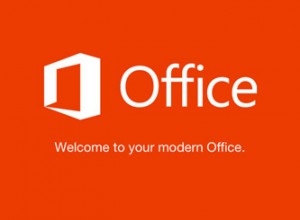 Student numbers have been increasing rapidly over the past few years and with it the need for more e-mail storage space. Up till now student mail has been hosted on the university’s mail servers, but we’re starting to run out of space.
Student numbers have been increasing rapidly over the past few years and with it the need for more e-mail storage space. Up till now student mail has been hosted on the university’s mail servers, but we’re starting to run out of space.
Information Technology has been investigating all the possible solutions and came to the conclusion that Office 365 would be the best choice for student e-mail in the near future.
MS Office and Microsoft operating systems are used in student computer user areas and would integrate seamlessly with this existing technology.
This project is currently still in a planning phase, but in the near future the university will make use of Microsoft’s free Office 365 service and during 2014 all student e-mails will be moved to the “cloud.”
*Please take note that Office 365 is not yet on the cards for SU staff. Office 2010 will remain the approved software for usage on campus.*


This is an alarming step in the wrong direction. There are numerous privacy, licencing and so-called “intellectual property” issues with cloud computing (and also cloud based e-mail).
Has this proposal been approved by the IP office? Quoting from an article about a recent data seizure case in the US (https://www.eff.org/deeplinks/2012/10/governments-attack-cloud-computing; accessed on 31/01/2014): “The government maintains that Mr. Goodwin lost his property rights in his data by storing it on a cloud computing service.”
Another example from Google’s terms of service with regards to their cloud based services (http://www.google.com/intl/en/policies/terms/; accessed on 31/01/2014): “When you upload or otherwise submit content to our Services, you give Google (and those we work with) a worldwide license to use, host, store, reproduce, modify, create derivative works (such as those resulting from translations, adaptations or other changes we make so that your content works better with our Services), communicate, publish, publicly perform, publicly display and distribute such content. The rights you grant in this license are for the limited purpose of operating, promoting, and improving our Services, and to develop new ones. This license continues even if you stop using our Services (for example, for a business listing you have added to Google Maps). Some Services may offer you ways to access and remove content that has been provided to that Service. Also, in some of our Services, there are terms or settings that narrow the scope of our use of the content submitted in those Services. Make sure you have the necessary rights to grant us this license for any content that you submit to our Services.”
How would this proposed move to cloud based e-mail impact copyright on work produced by students and staff at the university?
I would just like to know the implications of this on Mac and Linux users in Stellenbosch.